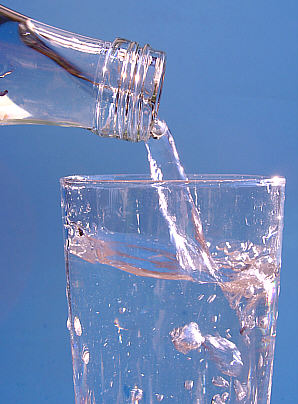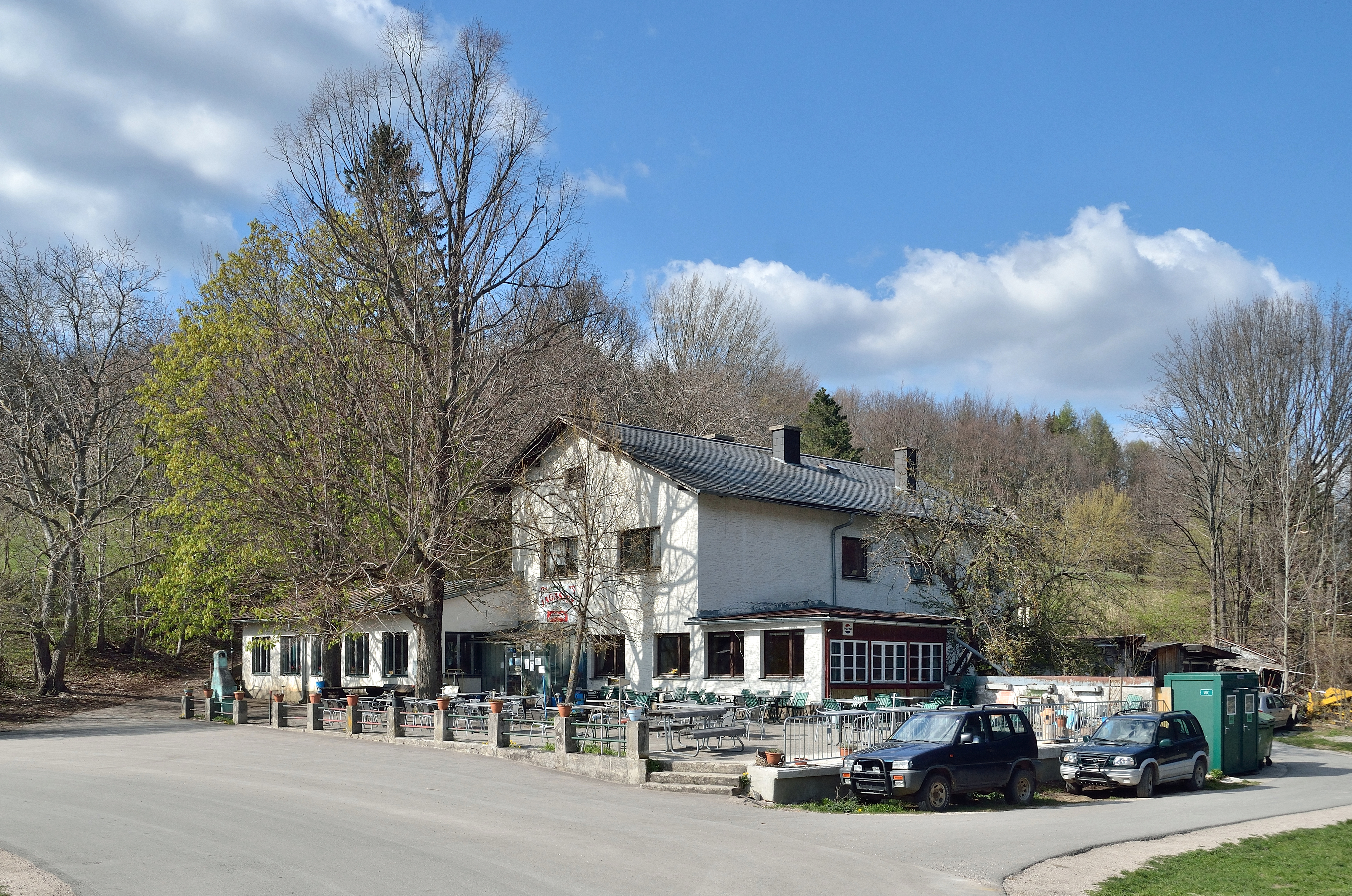|
Störtebeker Braumanufaktur
Störtebeker Braumanufaktur GmbH is a brewery in Stralsund, Germany and is the sole brewery in the city. The company produces beer under the brands "Störtebeker" and "Stralsunder", as well as mineral water and other non-alcoholic beverages. The brewery adopted its present name at the end of 2011; before this, it was known as Stralsunder Brauerei GmbH. The name is a homage to the German pirate Klaus Störtebeker. History Störtebeker Braumanufaktur was founded in 1827 as "Stralsunder Vereinsbrauerei" and served the surrounding area, including a number of resorts along the Baltic coast. Due to increasing demand, the brewery constructed a new building along the Greifswalder Chaussee with modern technology, including one of the first mechanical refrigeration units. After the Second World War, operations continued, and the brewery was reincorporated as a publicly owned Volkseigener Betrieb The Publicly Owned Enterprise (german: Volkseigener Betrieb; abbreviated VEB) was the main l ... [...More Info...] [...Related Items...] OR: [Wikipedia] [Google] [Baidu] |
Stralsund
Stralsund (; Swedish: ''Strålsund''), officially the Hanseatic City of Stralsund (German: ''Hansestadt Stralsund''), is the fifth-largest city in the northeastern German federal state of Mecklenburg-Western Pomerania after Rostock, Schwerin, Neubrandenburg and Greifswald, and the second-largest city in the Pomeranian part of the state. It is located at the southern coast of the Strelasund, a sound of the Baltic Sea separating the island of Rügen from the Pomeranian mainland.'' Britannica Online Encyclopedia'', "Stralsund" (city), 2007, webpageEB-Stralsund The Strelasund Crossing with its two bridges and several ferry services connects Stralsund with Rügen, the largest island of Germany and Pomerania. The Western Pomeranian city is the seat of the Vorpommern-Rügen district and, together with Greifswald, Stralsund forms one of four high-level urban centres of the region. The city's name as well as that of the Strelasund are compounds of the Slavic ( Polabian) ''stral'' and ''s ... [...More Info...] [...Related Items...] OR: [Wikipedia] [Google] [Baidu] |
Germany
Germany,, officially the Federal Republic of Germany, is a country in Central Europe. It is the second most populous country in Europe after Russia, and the most populous member state of the European Union. Germany is situated between the Baltic and North seas to the north, and the Alps to the south; it covers an area of , with a population of almost 84 million within its 16 constituent states. Germany borders Denmark to the north, Poland and the Czech Republic to the east, Austria and Switzerland to the south, and France, Luxembourg, Belgium, and the Netherlands to the west. The nation's capital and most populous city is Berlin and its financial centre is Frankfurt; the largest urban area is the Ruhr. Various Germanic tribes have inhabited the northern parts of modern Germany since classical antiquity. A region named Germania was documented before AD 100. In 962, the Kingdom of Germany formed the bulk of the Holy Roman Empire. During the 16th ce ... [...More Info...] [...Related Items...] OR: [Wikipedia] [Google] [Baidu] |
Mineral Water
Mineral water is water from a mineral spring that contains various minerals, such as salts and sulfur compounds. Mineral water may usually be still or sparkling (carbonated/effervescent) according to the presence or absence of added gases. Traditionally, mineral waters were used or consumed at their spring sources, often referred to as "taking the waters" or "taking the cure", at places such as spas, baths, or wells. The term ''spa'' was used for a place where the water was consumed and bathed in; ''bath'' where the water was used primarily for bathing, therapeutics, or recreation; and ''well'' where the water was to be consumed. Today, it is far more common for mineral water to be bottled at the source for distributed consumption. Travelling to the mineral water site for direct access to the water is now uncommon, and in many cases not possible because of exclusive commercial ownership rights. There are more than 4,000 brands of mineral water commercially available worldwide ... [...More Info...] [...Related Items...] OR: [Wikipedia] [Google] [Baidu] |
Klaus Störtebeker
"Nikolaus" Storzenbecher or "Klaus" Störtebeker (1360 – supposed 20 October 1401) was reputed to be leader of a group of privateers known as the Victual Brothers (german: Vitalienbrüder). The Victual Brothers ( la, victualia) were originally hired during a war between Denmark and Sweden to fight the Danish and supply the besieged Swedish capital Stockholm with provisions. After the end of the war, the Victual Brothers continued to capture merchant vessels for their own account and named themselves "Likedeelers" (literally: equal sharers). Recent studies manifest that Störtebeker was not called "Klaus" by prename but "Johann". Biography A large number of myths and legends surround the few facts known about Störtebeker's life. His name is both a nickname and a surname, meaning "empty the mug with one gulp" in Low German. The moniker refers to the pirate's supposed ability to empty a four-litre (about 1 US gal) mug of beer in one gulp. At this time, pirates and other ... [...More Info...] [...Related Items...] OR: [Wikipedia] [Google] [Baidu] |
Volkseigener Betrieb
The Publicly Owned Enterprise (german: Volkseigener Betrieb; abbreviated VEB) was the main legal form of industrial enterprise in East Germany. They were all publicly owned and were formed after Nationalisation#Germany, mass nationalisation between 1945 and the early 1960s, and the handing back in 1954 of some 33 enterprises previously taken by the Soviet Union as War reparations, reparations. The managing director of a VEB was called a plant or works manager (German: ''Werkleiter'', ''Werkdirektor'' or ''Betriebsdirektor''). He or she was assisted by the first secretary of the factory party organisation (''Betriebsparteiorganisation'') of the Socialist Unity Party of Germany, SED, and the chairman of the factory trade union (''Betriebsgewerkschaftsleitung''). Subordinate to them were roles such as "Chief Accountant" and "Technical Director". VEBs were initially vertical integration, vertically integrated into units called Associations of Publicly Owned Enterprises (''Vereinigung V ... [...More Info...] [...Related Items...] OR: [Wikipedia] [Google] [Baidu] |
German Reunification
German reunification (german: link=no, Deutsche Wiedervereinigung) was the process of re-establishing Germany as a united and fully sovereign state, which took place between 2 May 1989 and 15 March 1991. The day of 3 October 1990 when the German Reunification Treaty entered into force dissolving the German Democratic Republic (GDR; german: link=no, Deutsche Demokratische Republik, DDR, or East Germany) and integrating its recently re-established constituent federated states into the Federal Republic of Germany (FRG; german: link=no, Bundesrepublik Deutschland, BRD, or West Germany) to form present-day Germany, has been chosen as the customary ''German Unity Day'' () and has thereafter been celebrated each year from 1991 as a national holiday. East and West Berlin were united into a single city and eventually became the capital of reunited Germany. The East Germany's government led by the Socialist Unity Party of Germany (SED) (a communist party) started to falter on 2 May 1 ... [...More Info...] [...Related Items...] OR: [Wikipedia] [Google] [Baidu] |
Gasthaus
A Gasthaus (also called ''Gasthof'', ''Landhaus'', or ''Pension'') is a German-style inn or tavern with a bar, a restaurant, banquet facilities and hotel rooms for rent. Gasthäuser are typically found in smaller towns and are often family-owned. It is common for three generations of a family to work together in such an establishment, and many have been owned by the same family for generations. Gasthäuser are common in Germany, Austria, Switzerland, and other countries in Europe around Germany. Some are decorated with mural paintings (called Lüftlmalerei) depicting fairy tale stories or local legendary figures. Etymology Specifically translated a Gasthaus means "guest house" in German. Gasthof is a variation of the word, Landhaus means "country house" (though is essentially the same concept, just in a rural setting) and Pension means "boarding house" or small hotel. Lunch and dinner (''Mittagessen und Abendessen'') are usually served to the public, but breakfast (''Frühstück' ... [...More Info...] [...Related Items...] OR: [Wikipedia] [Google] [Baidu] |
Deutsche Presse-Agentur
Deutsche Presse-Agentur GmbH (dpa) is a German news agency founded in 1949. Based in Hamburg, it has grown to be a major worldwide operation serving print media, radio, television, online, mobile phones, and national news agencies. News is available in seven languages, among them German, English, Spanish and Arabic. The dpa is the largest press agency in Germany with headquarters in Hamburg and the central editorial office in Berlin. It is represented abroad with around 100 locations and maintains 12 state services in Germany with the corresponding offices. The dpa has 660 employees, the turnover was 101 million euros in 2021. History The dpa was founded as a co-operative in Goslar on 18 August 1949 and became a limited liability company in 1951. Fritz Sänger was the first editor-in-chief. He served as managing director until 1955 and as managing editor until 1959. The first transmission occurred at 6 a.m. on 1 September 1949. In 1986, the dpa founded Global Media Services (G ... [...More Info...] [...Related Items...] OR: [Wikipedia] [Google] [Baidu] |
Ostsee Zeitung
The ''Ostsee-Zeitung'' (abbreviated ''OZ'') is a German language regional daily newspaper published in Rostock, Germany. It was launched in East Germany in 1952 and has been in circulation since then. History and profile Founded in 1952, ''Ostsee-Zeitung'' was one of the newspapers published in East Germany before the German reunification. The paper was owned the Socialist Unity Party during this period. As of 1959 the paper had thirteen local editions. The paper is based in Rostock and is published in Rheinisch format. ''Ostsee-Zeitung'' was part of the Ostsee-Zeitung GmbH, a subsidiary of the Axel Springer group, until 2008. The group acquired the shares in the paper in 1990. The Lübecker Nachrichten GmbH, a subsidiary of the Madsack group, bought the Ostsee-Zeitung GmbH in February 2009. The Ostsee-Zeitung GmbH is a subsidiary of the Lübecker Nachrichten GmbH. The Madsack group also owns ''Freie Presse'', ''Göttinger Tageblatt'', ''Hannoversche Allgemeine Zeitung'', '' ... [...More Info...] [...Related Items...] OR: [Wikipedia] [Google] [Baidu] |
Rostock
Rostock (), officially the Hanseatic and University City of Rostock (german: link=no, Hanse- und Universitätsstadt Rostock), is the largest city in the German state of Mecklenburg-Vorpommern and lies in the Mecklenburgian part of the state, close to the border with Pomerania. With around 208,000 inhabitants, it is the third-largest city on the German Baltic coast after Kiel and Lübeck, the eighth-largest city in the area of former East Germany, as well as the 39th-largest city of Germany. Rostock was the largest coastal and most important port city in East Germany. Rostock stands on the estuary of the River Warnow into the Bay of Mecklenburg of the Baltic Sea. The city stretches for about along the river. The river flows into the sea in the very north of the city, between the boroughs of Warnemünde and Hohe Düne. The city center lies further upstream, in the very south of the city. Most of Rostock's inhabitants live on the western side of the Warnow; the area east of th ... [...More Info...] [...Related Items...] OR: [Wikipedia] [Google] [Baidu] |
Beer Brands Of Germany
Beer is one of the oldest and the most widely consumed type of alcoholic drink in the world, and the third most popular drink overall after water and tea. It is produced by the brewing and fermentation of starches, mainly derived from cereal grains—most commonly from malted barley, though wheat, maize (corn), rice, and oats are also used. During the brewing process, fermentation of the starch sugars in the wort produces ethanol and carbonation in the resulting beer.Barth, Roger. ''The Chemistry of Beer: The Science in the Suds'', Wiley 2013: . Most modern beer is brewed with hops, which add bitterness and other flavours and act as a natural preservative and stabilizing agent. Other flavouring agents such as gruit, herbs, or fruits may be included or used instead of hops. In commercial brewing, the natural carbonation effect is often removed during processing and replaced with forced carbonation. Some of humanity's earliest known writings refer to the production and distribu ... [...More Info...] [...Related Items...] OR: [Wikipedia] [Google] [Baidu] |






